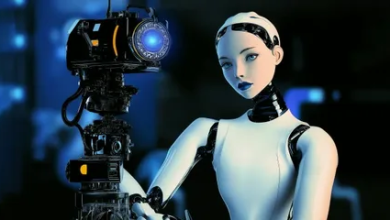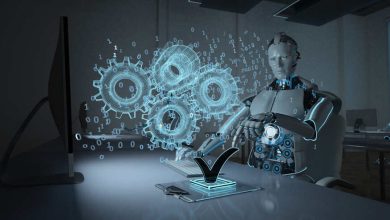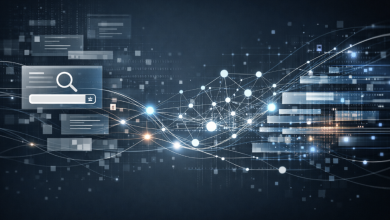The world of work is undergoing a transformation not seen since the Industrial Revolution. At the heart of this shift is artificial intelligence (AI)—a technology advancing so quickly that it’s reshaping industries, altering career paths, and challenging long-standing ideas about what it means to have a job. While some fear mass unemployment, others see AI as an opportunity to unlock human potential, create new roles, and solve problems at scales previously unimaginable.
The truth lies somewhere in between. AI will undoubtedly displace certain types of work, but it will also generate new opportunities, new industries, and new ways of organizing labor. The future of work will not be about humans versus machines—it will be about humans with machines, learning how to collaborate with algorithms and automation in ways that expand possibilities rather than shrink them.
This article takes a deep look at how AI is reshaping the workforce, what skills will matter most in the coming decades, and how individuals, organizations, and governments can prepare for an uncertain but exciting future.
AI in the Workplace Today
“AI is no longer a futuristic concept. It’s already embedded in countless workplace tools and processes, often in ways we don’t notice. Recommendation engines decide what products customers see on e-commerce sites. Chatbots handle customer support inquiries. Machine learning algorithms scan resumes and shortlist candidates for interviews. Predictive maintenance systems monitor industrial equipment, reducing downtime and saving millions.” said Robert Liu, CTO of African Net Sponge
In creative industries, AI generates music, writes articles, and even produces digital art. In healthcare, algorithms analyze medical images faster than radiologists, identifying cancers and other conditions with striking accuracy. Financial firms use AI to detect fraud and assess risk. Logistics companies rely on AI for route optimization, cutting costs and emissions.
These are not experimental projects—they’re mainstream practices shaping competitive advantage across industries. But the widespread integration of AI also raises fundamental questions: What happens to the jobs traditionally performed by humans? Which industries will thrive, and which will shrink? And how do we prepare the workforce for this new landscape?
The Inevitable Disruption: Jobs at Risk
One of the most pressing concerns about AI is automation replacing human labor. History offers clues: every major technological revolution—from mechanization in farming to assembly lines in factories—has displaced jobs while creating new ones. AI is expected to follow this pattern, but the disruption may be deeper because it targets not only manual tasks but also cognitive work.
“Routine, repetitive jobs are especially vulnerable. Data entry clerks, telemarketers, and certain types of administrative assistants are already seeing roles automated. In transportation, self-driving technology threatens millions of driving jobs, from truckers to taxi drivers. Manufacturing, long subject to mechanization, is experiencing another wave of automation as robots become smarter, cheaper, and more adaptable.” adds Jessica Shee from iboysoft.com
Even white-collar professions once thought safe are being reshaped. AI can draft legal contracts, generate code, and perform basic financial analysis. While it doesn’t yet replace skilled professionals entirely, it does reduce the demand for entry-level workers, raising barriers for those trying to break into these fields.
Estimates vary, but a widely cited report from McKinsey suggests that by 2030, up to 375 million workers worldwide may need to switch occupational categories due to automation. That scale of disruption poses both a challenge and an opportunity.
Jobs That Will Grow in the Age of AI
“Just as some roles disappear, others will emerge. Historically, new technologies have always created industries that didn’t previously exist. Think about how the rise of the internet gave birth to web developers, digital marketers, and social media managers—jobs unimaginable a generation ago.” shares Alex Taylor, Head of Marketing at Ichessed
AI will generate similar waves of new work. Some of the fastest-growing categories include:
- AI Specialists and Machine Learning Engineers: Demand for those who can build, train, and refine algorithms is skyrocketing.
- Data Scientists and Analysts: As AI relies on data, professionals who can interpret, clean, and manage datasets are in high demand.
- AI Ethics Officers and Policy Experts: As concerns about bias, fairness, and accountability grow, organizations will need professionals to ensure responsible AI use.
- Human-AI Interaction Designers: Specialists who design how humans and AI systems collaborate—whether in apps, workplaces, or physical machines.
- Cybersecurity Experts: As AI grows, so do new vulnerabilities, requiring advanced defenses.
- Healthcare Technologists: AI-driven diagnostics, personalized medicine, and digital therapeutics are creating roles at the intersection of health and technology.
Beyond technical roles, fields that require creativity, emotional intelligence, and human judgment will remain resilient. Teachers, therapists, designers, entrepreneurs, and skilled tradespeople will still thrive, though their work may evolve with AI-enhanced tools.
Skills for the AI-Driven Future
The future of work will be less about what you know and more about how you adapt. Static skill sets will become obsolete faster, while the ability to learn, unlearn, and relearn will define success. Several skills stand out as critical:
- Digital Literacy: Comfort with AI tools, data, and emerging technologies will be as basic as reading and writing.
- Complex Problem-Solving: AI handles routine tasks, but humans will be relied upon for ambiguity, creativity, and innovation.
- Emotional Intelligence (EQ): Skills like empathy, communication, and collaboration cannot be replicated by machines.
- Adaptability and Resilience: As job roles evolve rapidly, the capacity to pivot and embrace lifelong learning is essential.
- Ethics and Systems Thinking: Understanding how AI systems affect society, culture, and fairness will be crucial for leadership and decision-making.
Educational institutions, businesses, and governments must rethink training. Instead of preparing students for a single lifelong career, the focus should be on building adaptable, versatile learners who can navigate constant change.
Human-AI Collaboration: A New Paradigm
“The most promising future is not one where AI replaces humans, but where humans and AI collaborate. Consider doctors using AI to interpret scans, freeing them to spend more time with patients. Or lawyers using AI to scan vast legal databases, allowing them to focus on strategy rather than research drudgery.” shares Jay Soni, CEO of Yorkshire Fabric Shop
This “centaur model”—where humans and machines complement each other—can produce better outcomes than either working alone. For example, in chess, human-computer teams consistently outperform both solo humans and solo AI systems. The future of work may follow a similar pattern, where success comes from mastering collaboration with intelligent systems.
The Ethical Dimension: Who Benefits from AI?
As with any major technology, AI raises ethical and societal questions. Will automation primarily benefit corporations and shareholders, or will workers share in the gains? If AI boosts productivity but eliminates jobs, how should societies respond?
Issues of bias and fairness are already evident. AI systems trained on biased data can perpetuate discrimination in hiring, lending, and law enforcement. Ensuring equity requires both technological solutions and policy frameworks. Transparency, accountability, and inclusive design are not optional—they’re necessary for public trust.
Some experts advocate policies like universal basic income (UBI) to cushion workers against job losses. Others propose stronger retraining programs, wage subsidies, or tax incentives for companies that invest in human development alongside automation. The choices societies make in the next decade will shape whether AI deepens inequality or broadens opportunity.
Global Perspectives: Different Countries, Different Paths
The impact of AI on work won’t be uniform across the globe. Advanced economies like the U.S., Japan, and Germany face demographic challenges—aging populations and shrinking workforces—that make automation attractive to fill labor gaps. In contrast, developing countries with young, growing populations may struggle if automation reduces demand for the kinds of manufacturing and service jobs that once lifted millions out of poverty.
China is investing heavily in AI as a strategic priority, seeking to dominate global markets. The European Union emphasizes ethics and regulation, aiming for “trustworthy AI.” Meanwhile, countries in Africa and Southeast Asia are experimenting with leapfrogging technologies, using AI in agriculture, finance, and education to accelerate development.
The diversity of approaches highlights that while AI is global, its effects are deeply local. The future of work will depend not only on technology itself but on how societies choose to deploy and govern it.
Case Studies: AI in Action
To see the future of work taking shape, consider a few industries:
- Healthcare: AI is helping doctors detect diseases earlier, personalize treatment plans, and manage hospital resources. Rather than replacing doctors, it augments their abilities, leading to better patient outcomes.
- Retail: Amazon uses AI for inventory management, dynamic pricing, and customer recommendations, streamlining operations while creating new roles in logistics and cloud computing.
- Education: Adaptive learning platforms adjust lessons to each student’s pace, freeing teachers to focus on mentorship and personalized support.
- Agriculture: AI-powered drones and sensors monitor crops, improving yields and reducing resource waste. Farmers become data managers as much as growers.
- Media and Entertainment: AI generates music, scripts, and even video content. Human creativity remains vital but is increasingly assisted by generative tools.
Each case shows that AI doesn’t simply remove jobs—it transforms them, shifting value from routine tasks to higher-order work.
Preparing for the Future: What Individuals Can Do
For workers, the best response is proactive adaptation. Lifelong learning will no longer be optional. Online platforms like Coursera, Udemy, and LinkedIn Learning offer affordable ways to build digital skills. Networking, creativity, and entrepreneurship will matter more than climbing a single career ladder. Side projects and portfolio careers—where individuals juggle multiple roles and income streams—may become the norm.
Workers should also focus on uniquely human strengths: creativity, critical thinking, emotional connection, and adaptability. These are the skills AI cannot replicate. Investing in health and resilience is equally important, as longer lifespans mean longer careers. Those who embrace AI as a tool rather than resist it as a threat will be best positioned to thrive.
Preparing for the Future: What Organizations Must Do
“For businesses, the challenge is balancing efficiency with responsibility. Automation can cut costs, but neglecting human development erodes trust and long-term competitiveness. Leading organizations are investing not only in AI systems but also in reskilling programs for their workforce.” shares Chris Ambas, CEO of Swiftly Legal
Companies that succeed in the AI era will be those that foster a culture of adaptability, encourage experimentation, and treat employees as partners in innovation. Hybrid human-AI teams will become the standard, requiring thoughtful design of workflows and roles. Leadership will need to shift from command-and-control to guiding collaboration between people and machines.
Preparing for the Future: The Role of Governments
Governments face the task of shaping the policy environment to ensure AI benefits are widely shared. This includes funding education systems that emphasize lifelong learning, supporting retraining for displaced workers, and designing safety nets that protect people during transitions.
Regulation is also key. Rules that promote transparency, prevent discrimination, and hold companies accountable for harmful AI use are necessary to build trust. At the same time, policymakers must avoid stifling innovation. The balance will be delicate, but the stakes are high. How governments act today will determine whether AI leads to a golden age of productivity or a crisis of inequality and instability.
Conclusion: A Future We Can Shape
Artificial intelligence is reshaping the future of work in profound ways. Jobs will change, industries will evolve, and new opportunities will arise alongside real challenges. The story is not one of inevitable doom or utopia—it is a story of choices.
Humans are not powerless in this transition. By embracing lifelong learning, fostering adaptability, and focusing on uniquely human skills, individuals can thrive. By investing in responsible innovation and supporting their employees, organizations can unlock the potential of human-AI collaboration. By enacting thoughtful policies, governments can guide AI toward broad-based prosperity rather than concentrated advantage.
The future of work is not predetermined. It is being written now—by the technologies we build, the policies we choose, and the values we uphold. AI will not simply decide the fate of human labor; we will. The challenge is to ensure that the future we create is one where machines empower rather than replace us, and where work remains not just a source of income but a source of purpose, dignity, and growth.




